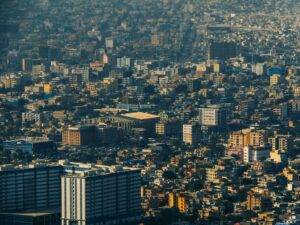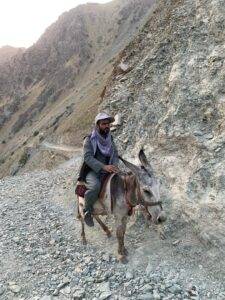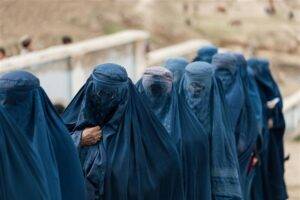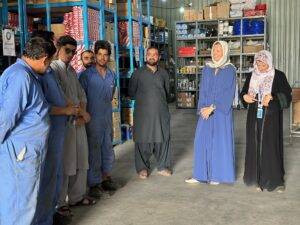Afghanistan, Four Years On: How CTG’s Afghan-Led Teams Help Keep Aid Flowing
In the sweltering summer heat of 15 August 2021, Kabul was a city holding its breath. The CTG team – in Afghanistan since 2006, recruiting and managing staff for humanitarian and development programmes – were moving offices when the news broke: the government had fallen.
The Islamic Emirate of Afghanistan’s (IEA) rapid advance sent shockwaves through the country. Government facilities were now under IEA administration. Banks suspended their operations. More than 120,000 people – both international personnel and Afghans – sought urgent evacuation.
Within hours, international offices were shuttered and foreign aid – covering 75% of public spending – halted. The economy teetered, and a humanitarian crisis deepened. For those working in aid and development, the day became a race against time: to safeguard documents, check in on staff, and decide whether to stay or go.
CTG stayed. Our Afghan-led teams continued working, navigating the new realities – safeguarding staff, keeping payroll running when the banking system collapsed, and ensuring humanitarian personnel could keep delivering in communities across the country.
Four years on, that commitment has not changed. Our teams are still working across all 34 provinces. Today, more than 3,700 Afghan nationals work with CTG as engineers, lab technicians, community mobilisers, vaccinators, and more.

On 15 August 2021, the Taliban took control of Afghanistan’s capital city, Kabul.
Adapting under pressure
The hours and days after the takeover brought immediate operational challenges. Power cuts became routine, internet connections faltered, and communications with field staff were patchy at best. To keep programmes running, CTG shifted to solar power, moved to remote work where possible, and put in place new ways to share information quickly and securely.
The collapse of the banking sector created another urgent challenge: how to pay thousands of humanitarian personnel nationwide. CTG turned to the local hawala system, an informal money transfer network, to get salaries to staff.

Credit: Shouib Jehish. CTG Monitoring & Evaluation Officer Shouib Jehish accesses remote areas via donkey.
“In some of the most remote districts, cash had to be sent by donkey. The rent of the donkeys was double the salary of the staff!” recalls Rahim, Senior Regional Risk & Security Manager. “But slowly, slowly, slowly, we managed to reach every single consultant.”
Close coordination with clients, especially UN agencies, was crucial. They provided support such as ID cards, and made arrangements for remote work when travel was unsafe. “Our colleagues from different countries constantly reached out to us and offered their support,” says Khalid, Deputy Regional Manager. “Our CEO was a constant presence, checking in, helping to solve problems and making sure we had what we needed to keep going. With the strong network we had in country, and the communication we put in place – we did not let the operation stop.”
“When things settled,” explained former Regional Director Pierre Doucet, “and clients began resuming their activities, they needed implementing partners – and CTG was there. This gave us a huge advantage over others who took longer to reassess and return to the country.”
During the first six months of the new government, we did headcounts every day. We did headcounts to make sure everyone was safe. – Rahim
The value of local ties
In the months after the takeover, Afghanistan’s new reality brought rapidly changing rules, movement restrictions. In this environment, gaining access took more than paperwork or official agreements: it came down to trust built over years within communities.
CTG’s strength lies in the hyper-localisation of its teams – consultants often work in their home provinces or villages, known as neighbours rather than outsiders This familiarity builds a positive reputation in places where suspicion toward aid workers can run high.
Village elders are engaged as trusted intermediaries, explaining CTG’s humanitarian mission and reinforcing neutrality. With more than half of Afghanistan’s population – around 23 million people – in need of assistance, these personal relationships are critical.
Consultants speak local languages and understand customs, making communication and negotiations more effective. In some districts, particularly where programmes involve women, access is more restricted. Here, personal connections are often the only route in. As Khalid explains, “In Afghan culture, if you build friendly relationships with people, they will stick with you through difficult times.”
Women’s roles in humanitarian response
Based on a decree issued by the Supreme Leader of the Islamic Emirate of Afghanistan (IEA) in December 2022, women were instructed not to report to duty across the country, with the exception of health and education sectors. This decree has posed an additional challenge for the team in Afghanistan.
CTG supports more than 1,000 Afghan women in these key healthcare and education roles – reaching beneficiaries that male staff cannot.
One example of how regulations affect daily operations, as Rahim explains, is dress code. While the UN does not set requirements for how staff dress, local laws require women to cover their entire bodies and faces. Because our work in Afghanistan requires adherence to local laws and cooperation with government authorities, our policy adapted.

Women in Afghanistan continue to adapt in a shifting legal landscape
CTG has prioritised safeguarding our female staff and consultants at every turn: advocating for remote work, arranging safe transport, hiring mahrams so women can commute in line with local requirements, and providing secure accommodation when needed. “Through regular meetings with our female colleagues, we stayed connected and coordinate closely with our team and clients to keep them safe,” says Khalid. In May 2025, a UN report detailed threats made against Afghan women working in the aid sector, prompting the UN to introduce further safety measures. The IEA has denied any involvement and said they will be investigating the threats.
Despite the barriers facing them, the women of Afghanistan continue to play a vital role in our operations and the communities we serve.
Our commitment

CEO Alice Laugher visited the Afghanistan teams in 2024.
Afghanistan remains one of the world’s most complex humanitarian environments.
CTG continues to operate not as outsiders, but as part of the communities we serve. Our Afghan-led teams help our partners deliver life-saving support in every province. Their ability to adapt, solve problems, and support our consultants is a testament to their resilience and dedication.
Four years on from the political transition, CTG’s mission is unchanged: enabling humanitarian action through local people, in places few others can reach.
“In Asia, and especially in Afghanistan, our work is about more than delivering services – it’s about standing with communities in times of uncertainty, supporting our clients with integrity, and building trust,” says Muzafar Kaemdin, CTG Regional Director Asia. “Our commitment is to ensure that every action we take leaves a positive, lasting impact for the people and places we serve.”
